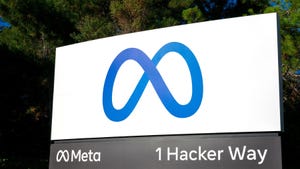Survey: Investors Pouring Money in Data Centers Expect High ReturnsSurvey: Investors Pouring Money in Data Centers Expect High Returns
A recent survey by CBRE found that most investors expected 10 percent or higher returns from data center investments in North America•Last year saw a record level of investment in the data center sector, and investment is expected to grow in 2018•Optimism in the sector is fueled by global digitization trends

Investors poured more money in North American data centers last year than they did in any previous year – more than in three previous years combined, according to CBRE – and the level of investment is expected to rise even further this year.
Not only are they investing tons of money in the sector, they expect high returns, according to a market report published this week by CBRE, which tracked north of $20 billion in data center investment in 2017.
The commercial real estate services company’s recent Sentiment Survey of the North American data center market (the first of its kind it has done), polled senior management in 42 companies across the US. Half of the respondents were “occupiers,” or companies that used data centers to host their IT equipment, while the other half consisted of data center service providers and investors.
Half of the respondents in the second group expected data center spend to rise more than 8 percent in 2018. About 40 percent expected returns of 20 percent and greater on data center investment, while more than 50 percent expected returns between 10 percent and 20 percent. Only five percent of investors and providers expected returns of 10 percent and lower.
Optimism in the data center sector is fueled by global digitization trends. More and more people are coming online, and more and more of them are connecting via smartphones. Companies are transitioning to digital-centric ways of doing business, which means their IT infrastructure needs are growing.
Colocation providers, both retail and wholesale, and cloud companies are benefitting from this growth. And capturing this demand means they need to grow their data center capacity, making the sector attractive to investors.
Half of the investors CBRE surveyed said they were investing in wholesale colocation companies, while the other half said their primary focus was on “value add assets.” In the data center sector, value-add means additional services, such as managed services or managed security, on top of raw space, power, and cooling.
Data centers are in a group of asset classes real estate investors consider “alternative.” That’s opposed to established classes, such as office, retail, industrial, and hotels. Other alternative asset classes include student housing, senior housing, and laboratories.
Alternative asset classes are one of the ways investors diversify their holdings. Instead of investing in more assets from established classes in a new geography, for example, an investor may choose to invest in alternative assets in an established market. In fact, according to the commercial real estate firm Jones Lang LaSalle, that’s been the preferred way to diversify among investors lately.
Making alternative classes even more attractive is a trend of compressing yields from some top established classes, JLL analysts explained. Alternative classes are a way to expose an investment portfolio to real estate “at a relative discount” but with higher returns.
About the Author
You May Also Like







